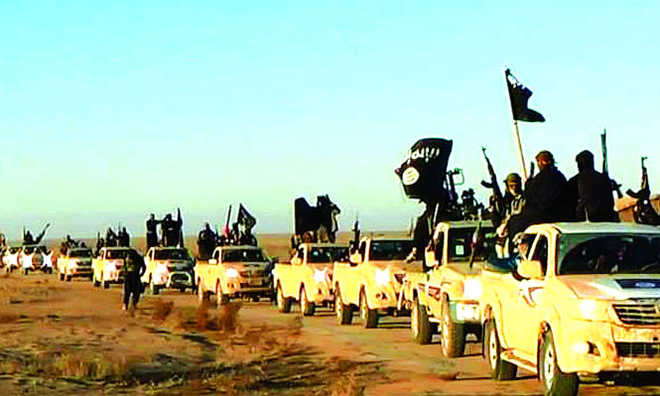
Is terrorism about religion or a fight for political power in the end?
Saba Naqvi
IN Harper Lee’s classic To Kill a Mockingbird, the quiet Atticus Finch is the moral centre of the book: he fights against entrenched prejudice without losing faith in the human capacity for goodness. All the White people in the novel uncomfortable with the ‘niggers’ are not uniformly bad, and Atticus wants to teach his children the ability to see the world from many points of view. The mockingbird, a species that can mimic the songs and calls of other birds, comes to represent an innocence that could be destroyed in the novel as children confront adult attitudes to race and class in the Deep South of the 1930s’ America. The title of this column, therefore, should not be confused with any intent to mock.
The book that inspires the title, meanwhile, has been kept alive for me by my daughter, now 17, having placed it on her shelf as among her favourites. I have witnessed over the years that each Harry Potter book too has kept her spellbound and there are phrases in those wonderfully written works that can be used to describe hellish and pernicious terrorism: JK Rowling has given us the dark lord with evil in his heart, there are death worlds and death eaters, there is in fact an entire parallel universe that must be fought by the forces of good.
Good versus Evil is the oldest bestselling format of story-telling in the world, from the ancient epics to modern fiction. The problem is that when we confront some of our contemporary realities, we need more of the Atticus Finch approach than the spectacle of wizards zapping the villains. Yet, we conduct our national debates on polarising issues, such as terrorism, without the shades of grey and exploring the root cause theories. This happens mostly because it’s simpler to hold the audiences without complexity that would break the breathtaking pace of the narrative. It’s also easier to tell a story that conforms to stereotypes instead of challenging them.
Since the West is the target of the latest terror creation, the Daesh, it is inevitable that some commentators there should believe they are indeed engaged in a clash of civilisation between two worlds. But, in the West, such debates are framed from a variety of positions that range from expressions of revulsion to Islam and Muslims, to great gestures of humanism and also significantly at times, a critique of their own global policies. For instance, France is already rethinking its approach to the Assad regime in Syria. Besides, in the western media, there are many articles in circulation about the US beginning a senseless war on terror that’s only produced more terrorists.
Like most sane people, I too would like Daesh to be exterminated and I use that word quite deliberately. For, when I think of them, I also think of cockroaches that happen to be one of the oldest species in the world, that seem to survive all attempts to kill them. Has the world created conditions for these non-human species called Daesh? The pounding of the terror group’s headquarters in Raqqa, Syria, that followed the Paris attack, makes me wonder about how you go about the process of killing something that thrives in death and feasts off what remains of civilisation and humanity anyway.
I still understand the terror debate in the West although I have no sympathy for their global policies. What frustrates me is how quickly we in India try to fit into the western narrative and often forget our own contemporary history. We have a very specific historical problem with Pakistan and Kashmir and we have battled all forms of terrorism. That includes Sikh militancy in Punjab that claimed the life of Indira Gandhi, while her son Rajiv was killed by the LTTE whose members’ religious identity was not central to what they did. And one of the least covered problems that simmer in our neighbourhood, in Myanmar and Sri Lanka, is that of Buddhist monks advocating extremism.
In his very useful book published in 2005 titled Dying to Win, American political scientist Robert A Pape gives a comprehensive overview of suicide killings, from the Japanese Kamikaze pilots, 3,000 of whom crashed into US naval vessels during World War II, to North Koreans who acted against the South, to the LTTE, and Islamist militants. Written in the post-9/11 reality confronting the US, the work argued persuasively that terrorism is not about religion but the fight for political power.
At the time when he published the book, Pape also included a database of every suicide bombing and attack around the globe from 1980 to 2003. He would then write that the leading instigators of such suicide attacks were the LTTE. But that has obviously changed. In 2003, the US invaded Iraq and the country would soon be demolished. In 2011, the West sought a regime change in Syria and a civil war began. Now the earth in that part of the world is scorched, civilisation flattened, and human beings on the run. It is only the roaches of terrorism that can survive.



























